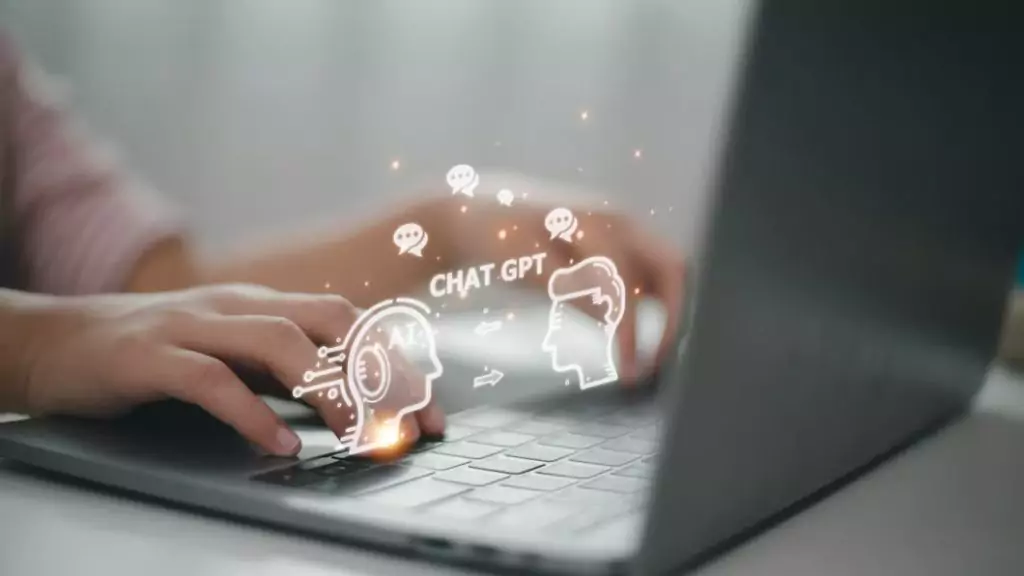A groundbreaking event has occurred in the legal industry. GPT-4, an advanced artificial intelligence (AI) model, passed the Uniform Bar Exam (UBE) with outstanding results. This achievement could mark the beginning of a revolutionary transformation in the legal world, making legal services more accessible and efficient for everyone.

✅ AI Essay Writer ✅ AI Detector ✅ Plagchecker ✅ Paraphraser
✅ Summarizer ✅ Citation Generator
Key Takeaways:
- The advanced AI model GPT-4 passed the Uniform Bar Exam with flying colors. This breakthrough openes new possibilities for AI in the legal field.
- Exciting developments in AI technology, like Agentic AI and multi-modal tech, could make legal services faster and more available for everyone.
- Despite the power of AI tools like GPT-4, it’s important that lawyers continue to oversee their work. And most importantly, keep ethical practices in place to maintain a fair legal system.
In a joint study by CodeX–The Stanford Center for Legal Informatics and legal tech company Casetext, GPT-4 didn’t just pass the UBE but scored in the top 10%. This impressive result outperformed the average human test taker.
GPT-4: A New Contender in the Legal Arena

Casetext’s Chief Innovation Officer and co-founder, Pablo Arredondo, partnered with CodeX researchers Daniel Katz and Michael Bommarito to examine GPT-4’s performance and assess its potential impact on the legal profession.
While GPT-4 isn’t ready for everyday use by lawyers yet, Arredondo believes it’s the first AI model capable of powering advanced legal tools. The rapid progress in AI language models comes with major changes in the legal field, with tools like GPT-4 potentially closing the gap in access to justice. These AI-powered tools can help lawyers work more efficiently, allowing them to serve more clients and streamline various legal processes.
Did you know? The term “bar”, used in the name of a legal exams, refers to the physical barrier that used to exist in courtrooms, which separated the lawyers and judges from the general public. To “pass the bar” originally meant literally being admitted past this barrier into the court. In the context of legal education jargon, passing the bar means demonstrating a competency in law sufficient to practice in a given jurisdiction.
Transforming Legal Practices Through AI Technology
Arredondo also anticipates significant advances in AI technology, such as Agentic AI and multi-modal tech, which could have a considerable impact on legal practice. Agentic AI allows AI models to strategize and execute tasks. In the meantime, multi-modal technology integrates text, vision, and other forms of data. These innovations could make the legal profession more equitable, technologically advanced, and efficient, benefiting both clients and lawyers.
In addition to enhancing efficiency, AI-powered tools like GPT-4 could contribute to leveling the playing field between large and small law firms, giving smaller firms the opportunity to compete with their larger counterparts. The democratization of legal services through AI could result in a more just and fair legal system, increasing access to quality legal representation for all.

However, Arredondo emphasizes that even with AI’s power, it still requires a lawyer’s supervision. The legal field must now focus on using AI responsibly and consider the short-term effects of this technology on lawyer training, growth, and the structure of law firms. While there are some concerns, AI has the potential to revolutionize the legal industry and redefine traditional practices.
The Human Element in an AI-Dominated Legal World
GPT-4’s success in passing the UBE signifies a pivotal moment for the integration of AI in the legal profession. As AI technology advances, it holds the potential to create a more level playing field. Additionally, it enhances the accessibility of legal services, and transform the way lawyers operate. While the future of AI in the legal profession may appear uncertain, one thing is clear: the human element remains crucial. By embracing the power of AI and maintaining a strong ethical foundation, the legal industry can work together. This way professional can achieve a more efficient, accessible, and just system that truly serves the needs of society.
GPT-4’s Impact on the Legal Profession and its Implications
| Aspect | Description |
| Achievement | GPT-4 passes the Uniform Bar Exam (UBE) |
| Significance | Watershed moment for AI in the legal profession; potential to revolutionize the industry |
| GPT-4’s Performance | Exceeds average human score, ranks in the 90th percentile; impressive improvement from GPT-3.5 |
| Researchers Involved | Pablo Arredondo, Daniel Katz, and Michael Bommarito; collaboration between Stanford CodeX and Casetext |
| Technological Strides | Neural nets, natural language processing, and large language models; advancements in Agentic AI and multi-modal AI |
| Applications for Legal Profession | Agentic AI for strategizing and executing tasks; multi-modal AI for vision-based tasks like patent analysis and comparing testimonies |
| Impact on Legal Industry | Levels the playing field; increases efficiency and productivity; enhances access to justice and affordability |
| Role in Closing Access to Justice Gap | Empowers lawyers to serve more clients and facilitate “just, speedy, and inexpensive” resolution of matters |
| Concerns | Attorney oversight; associate training; control and access issues; responsible AI usage in the legal profession |
| Role of AI in Legal Profession | Powerful tool to aid lawyers in representing their clients; complements human lawyers instead of replacing them |
Related articles:
Introducing the GMAT Focus Edition: Major Changes Coming to the Renowned Exam
Exam Room Dilemma: Exploring Teachers’ Opinions on Assistance During Tests and Quizzes
Gen Z Demands Change in Education: How Can Institutions Meet Their Needs?
Follow us on Reddit for more insights and updates.





Comments (0)
Welcome to A*Help comments!
We’re all about debate and discussion at A*Help.
We value the diverse opinions of users, so you may find points of view that you don’t agree with. And that’s cool. However, there are certain things we’re not OK with: attempts to manipulate our data in any way, for example, or the posting of discriminative, offensive, hateful, or disparaging material.